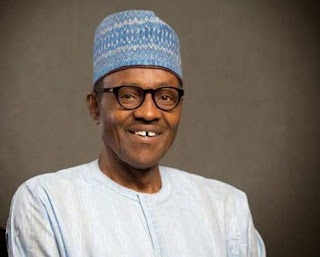Why Buhari is not winning the corruption war By Taiwo Adisa
Apart from his popular refrain that claims he belongs to nobody and belongs to everybody, one key quote associated to President Muhammadu Buhari is linked to corruption. He had repeatedly said: If we don’t kill corruption in Nigeria, corruption will kill us.
The two quotes signpost the President’s resolve to tackle corruption without looking back. Coupled with the fabled image of an anti-corruption fighter weaved around him in the past, intense fireworks were expected in the battle against the scourge of corruption on his assumption of office.
Three years in the saddle, Buhari’s anti-corruption scorecard is out there for all to see. Quite unlike the unanimity of opinion that ushered Buhari in in 2015, which indicated that he would fight corruption, the opinion today remain largely divided. Curiously, the opinions have been taking partisan lines.
But the fight against corruption, a present and pressing danger to humanity is not one whose judgment should be tied to conjecture. It is either the battle is effective or not. Luckily, the jury in this case are with prying eyes from international capitals all around. There are continental and intercontinental radars watching the performance of each country in that battle. And the jury is always out there in different forms.
If you ask the Acting Chairman of the Economic and Financial Crimes Commission (EFCC), Ibrahim Magu about the extent of successes recorded on the anti-graft front, the man would gladly reel out the records.
Last week, he did announce that the EFCC recorded 703 convictions in three years.
According to him, the Commission has “set recovery records to the envy of virtually all law enforcement agencies in Africa,” adding that the EFCC has also recovered more than N794 billion; over $261 million; £1,115,930.47, €8,168,871.13, and 86,500 CFA.
He listed some of the convictions to include that of two former state governors, Jolly Nyame of Taraba and Joshua Dariye of Plateau, as well as Joseph Nwobike, a Senior Advocate of Nigeria. A breakdown shows that the Commission recorded 103 convictions in 2015, 194 in 2016, 189 in 2017 and 217 from January 2018 till date.
But Magu had not finished his chest thumping session when statistics that challenge his records of performance started slipping into the public domain. The Senate uncovered some unappropriated expenses of $1.05 billion for the payment of fuel subsidy by the Nigerian National Petroleum Corporation (NNPC); the House of Representatives accused the Vice President of approving the spending of N5.8 billion for National Emergency Management Agency(NEMA) without due process, when the lawmakers were probing an alleged N33 billion fraud at that Agency; the Senate equally slammed a guilty verdict on the Nigeria Liquefied Natural Gas (NLNG) and the NNPC for spending another $1.151 billion on unauthorized subsidy claims; reports emanated that the Department of State Service (DSS) had indicted some chieftains of the ruling All Progressives Congress(APC) in a $55 million bribe-for tickets scandal, while the ICPC also filtered a report to the effect it was investigating the Director General of the National Broadcasting Commission(NBC) over an alleged N2.5 billion fraud.
All the above, added to the negative scores being recorded by Nigeria on the Transparency International (TI’s) corruption perception index give tell-tale signs as to the true rating of Buhari’s fight against corruption.
My take remains that the success of corruption war in a society where it has become endemic cannot be measured by the volume of convictions or arrests. If that would be, then we can as well gather statistics of armed robbery cases busted or prosecuted by the police as sign of victory over armed robbery.
That thousands of armed robbers have been killed and many more are languishing in prisons has not deterred more recruits into that dastardly crime.
Rather than adopt a coterie of strategies in the fight against corruption, the Buhari administration restricted itself to the ‘name and shame’ style.
In societies that reduced corruption to its barest, a single dose of measure did not do the magic.
A government cannot lay the foundation for corruption on one hand and turn around to complain about the scourge becoming an epidemic. A civil servant who is to prepare the way for execution of trillion Naira capital projects is not guaranteed of three-square meal, a roof over his head, his children’s school fees and even a functional transport system to make his way to office. Without a deliberate attempt by government to divert its social intervention towards addressing those issues, the country will continue to grapple with unsavoury news as above.
Whereas in other climes, all businesses respect cash limits as electronic transactions remains the order of the day even for purchase of the minutest items, the cash and carry system has continued to thrive here.
This government inherited the Integrated Payroll and Personnel Information Systems (IPPIS) scheme, ditto the BVN policy. The target of the IPPIS is to rid public service of ghost workers, while the BVN also has the same target but with added value of dealing with fraudsters in the financial system. Though it was learnt that BVN, on completion, exposed a number of civil servants and other Nigerians who had registered some fictitious accounts, that the government did not collate the gathered data to prosecute anyone meant the affected simply walked away.
Those caught in the IPPIS web adopted similar strategies, first to warehouse their loot in other accounts and then they escaped justice. Even when the former Minister of Finance, Kemi Adeosun claimed that 60,000 ghost workers were exposed through the implementation of the IPPIS, we are yet to see anyone in court for such infractions.
Except the government ensure the society truly becomes cashless with reliable credit systems and assurances of social infrastructure that address basic humanneeds, agencies like EFCC will continue to struggle to keep up with the volume of Nigerians that fall for the allure of fresh mint cash.


Comments
Post a Comment